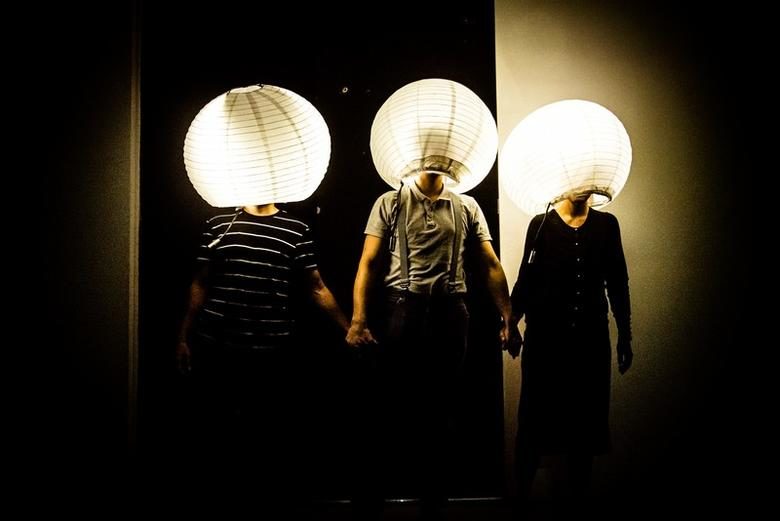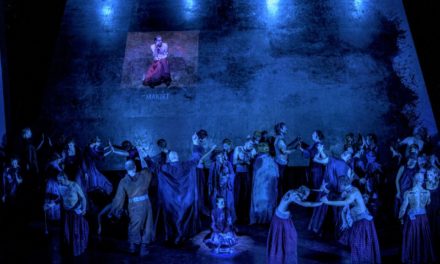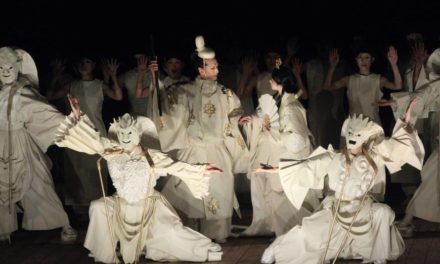The institution of the theatre constitutes a form of public/shared space.
The public theatre refers to the idea(l)s of citizenship and community; it shapes the rules of democratic social engagement, raises cultural consciousness and amplifies the cultural competence of audiences, providing citizens with free access to culture and artists with development opportunities.
Thus, the public theatre is a site that is conducive to the growth of artists and to the rise in audiences’ cultural competence.
The public theatre is a site of experimentation, posing questions and shifting perspectives.
The public theatre is an intellectual hub and a center of public debates; it a space of discussions tackling seminal social and political issues of the day.
The public theatre is an idea-creating space where one’s own, original concepts come into being that are connected to a given, local context.
The public theatre is a meeting place and thereby it is an open space–a space that embraces both audiences and artists–without confining them architectonically, program-wise, time-wise or otherwise.
(…)
Being a public institution, the theatre is a commonwealth that is not contingent upon the dealings of politicians, businesspeople or directors and cannot be subject to political or financial power games.
A public arts institution is obliged to take responsibility both for artists and the audience–be they present or future (potential). The responsibility encompasses among others creation of optimal conditions for development that will enable artistic exploration and risk-taking. (…) The democratization of relations between the institution of theatre and the audience ought to be reflected in the structure of the very institution and in the democratization of the internal relations. (…)
The public theatre is in need of real, responsible critical stance; it does not need to stage a spectacle about criticism, though.”
(translated from Polish by Bartosz Wójcik)
The text above is composed of the excerpts of the program manifesto I wrote in early autumn of 2014 when I collaborated with Teatr Polski in Bydgoszcz, Poland (www.teatrpolski.pl). Thrilled by the challenge to reform one of the public, city-funded, repertory theatres in Poland, together with a team of four committed artists and curators we decided to start our work from a clear political statement, an attempt to redefine the notion of public theatre institution in the local context. At that moment, the Polish theatre was heated by the public debate concerning the role, tasks, and responsibilities of theatre institutions, initiated on the 250th anniversary of establishing national theatre in Poland.
Such a discussion was (and remains!) crucial in the country where the performing arts field is strongly dominated by the repertory, city theatre model, where there is a very weak infrastructure for contemporary dance as all the funding seems to be eaten up by the big theatre institutions, and where an important, independent avant-garde scene created in the 1970s and 1980s either underwent the sometimes harmful process of institutionalization in 1990s and (mostly) after 2000, or has been left with very limited subsidies.
Almost two years later I must admit the repertory theatre institutions are still far away from being radically and deeply reformed and there are only a few in Poland which are interested in thematizing it–to say the least. What has changed is the current political context in which art is being produced: public theatre will be confronted with attempts to colonise it with nationalist discourse and certain historical and political narrations, but it may remain one of the few spaces of freedom to experiment, to question different political models/mechanisms/ways of thinking, and to create and test new, critical or utopian proposals. But what seems even more important is the influence of the neoliberal economic and social model on the way art is produced–and this started long before the last elections. What is thus to be problematized and redefined is the art production system, the working conditions, and the power relationships within art institutions.
And it’s fascinating to observe that the most interesting, refreshing, inspiring (and, last but not least, highly acclaimed by both audiences and the critics) performances produced in the Polish theatre during the last two seasons (2014/2015 and 2015/2016) are focused on this very topic. The artists created their own answers to the current debates, thematizing not only the working conditions and the institutional mechanisms but also the subjectivity of an artist in the contemporary art production system. Works by Weronika Szczawińska, Aktorzy żydowcy by Anna Smolar, Ewelina płacze by Anna Karasińska, Usland by Atman/Jakimiak/Malone/Siniarska, Kwestia techniki by Michał Buszewicz, Kantor. Dowtown by Janiczak/Krakowska/Mosiewicz/Rubin, Mikroteatr, a project of Komuna Warszawa, curated by Tomasz Plata and many others propose a way out from a critical theatre that dominated the Polish scene for the last years. These works touch the notion of the economy in the arts field but also problematize it by how they are produced, by redistributing power, by questioning the institutional relationships and proposing alternative ones. Created within the frames of repertory theatre or outside of them, they attempt to redefine the political mechanisms of producing art, sometimes directly criticising the current public theatre system. I find this to be a highly promising shift.
This post originally appeared on the East European Performing Arts Platform on July 26, 2016, and has been reposted with permission.
This post was written by the author in their personal capacity.The opinions expressed in this article are the author’s own and do not reflect the view of The Theatre Times, their staff or collaborators.
This post was written by Marta Keil.
The views expressed here belong to the author and do not necessarily reflect our views and opinions.


















